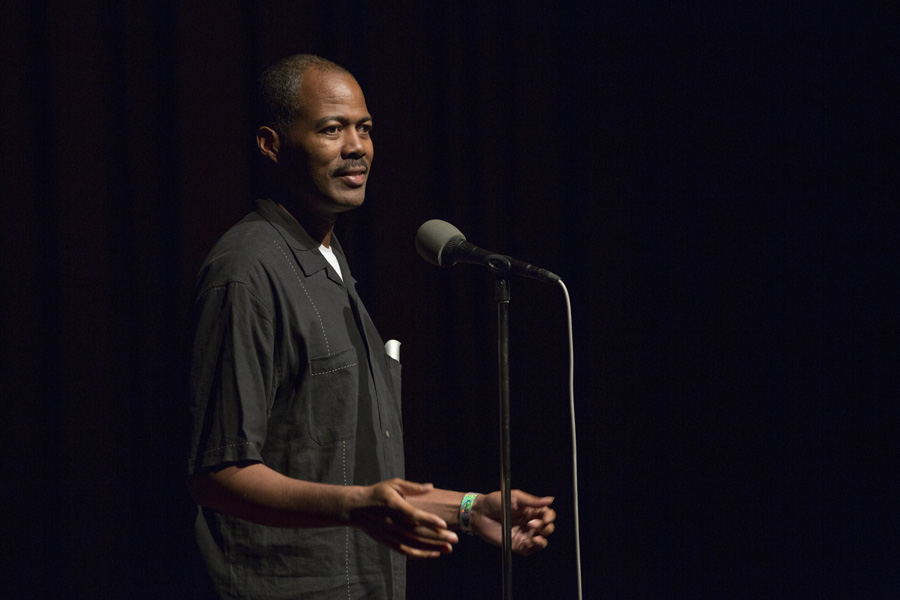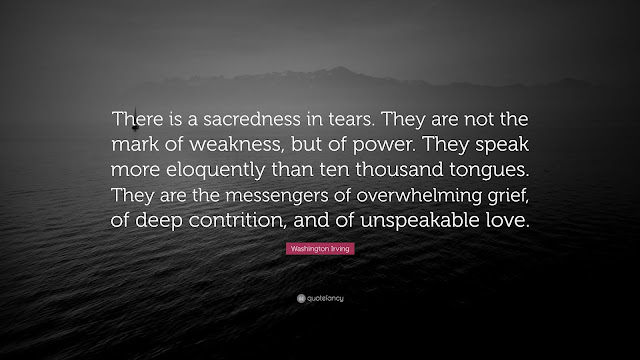One thing I often wonder as I listen to The Moth stories is whether I could ever tell my story there. (Telling my story—not just of my loss but also of how it has changed me—and, hopefully, inspiring others—is one of the ways I've figured I could bring good out of it. Whether I'd every truly try to tell it there is arguable, but it's something I sometimes think idly about while listening.)
The thing is: most of The Moth's stories are not only interesting but also funny. And every time I think about telling my story there, I realize, "But there's not a lot of 'funny' in my story." I mean, it might be some measure of inspiring, but...the man I was in love with and believed I'd marry and spend the rest of my life with died. And there just really isn't anything funny about that. (Maybe I just suck at finding the "funny" within it? I don't know. Two widows that I know are each working on a memoir; somehow they've found humor along the way, and they're writing about it. Kelley Lynn, a comedian, writer, actor, and performer, is working on her book, My Husband is Not a Rainbow. [Update: This book is now available.] And author, speaker, and advocate Hyla Molander is working on Drop Dead Life: A Pregnant Widow's Heartfelt And Often Comic Memoir About Death, Birth, And Rebirth. I really have no idea how they do it.)
Anyway, one Saturday a while back, my assumption that my story would never be funny enough for The Moth started to change when I heard a replay of the story told by comedian Anthony Griffith. He told about how, at the very same time, he was both working toward (and getting) stand-up appearances on The Tonight Show With Johnny Carson and dealing with the cancer that had returned to his 2-year-old daughter's body. He had to come up with a lot of "funny" during the time when he also had to provide home care for his daughter, watch cancer wreak havoc with her body, and somehow be strong for her. Tragically, she eventually passed away.
 |
| Anthony Griffith. (source) |
I listened with rapt attention. Wow, a Moth story that is not only not funny but also one in which the teller is actually crying? I guess The Moth has room for more kinds of stories than I had thought!
But after the story ended, one of the producers said that when she and the other producers were initially talking with Griffith about his sharing this story, she had told him, "You'll have to tell this without crying."
I could hardly believe my ears. They expected a bereaved father to talk about his late daughter and the cancer that took her life—and shed no tears at all?!?
Why are we so afraid of tears in our society? Why are they so often seen as a sign of weakness? Why are they seen as something to be avoided, sometimes at all costs?
The things is...tears are simply a sign of emotions that already exist; they are the body's way of expressing those emotions, of getting them out, of providing release. So—when we say to someone, "Don't cry," we're really telling them, "Don't show me your emotion. Don't be that raw, that real, that vulnerable with me." I realize that most of the time, what someone saying that probably means is, "I care about you and don't want you to be sad." But I don't think that's the message that tends to be received.
Did you know that crying is literally healing? Scientists have discovered that there are 3 kinds of tears: continuous (which keep our eyes lubricated and healthy), reflex (that happen when an irritant gets in them, like smoke, dust, or onion fumes), and emotional. And they've discovered that emotional tears contain stress hormones and other toxins, which means we're flushing them out of our bodies when we cry. They've also discovered that "crying stimulates the production of endorphins, our body’s natural pain killer and 'feel-good' hormones."1
I think it's high time we start making room for tears. That we start letting ourselves and those we care about be human and express whatever we and they need to express.
And it's high time we learned how to respond well when someone does so (see the video below). That we learn how to hold the space for them.
I can't help but think that the world would be a better place if we did.
_________________
1Source: Judith Orloff, M.D. The Health Benefits of Tears. Accessed October 13, 2014.
